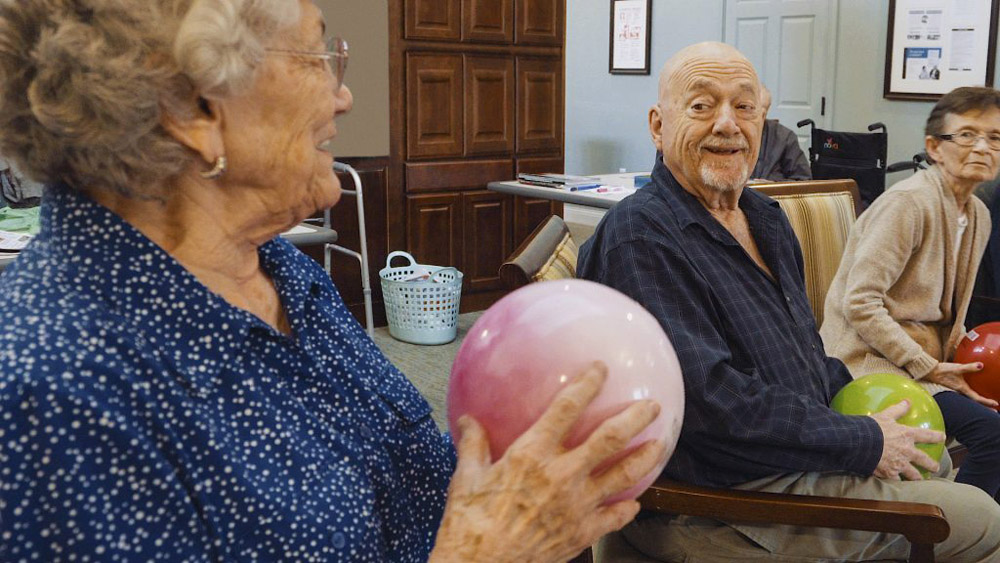Discover Compassionate Memory Care: Enhancing Top Quality of Life for Loved Ones
The journey of taking care of a loved one with cognitive impairments provides distinct challenges that can exceptionally influence family members dynamics and emotional well-being. Compassionate memory care facilities offer a structured, supportive atmosphere designed to resolve these obstacles while enhancing the quality of life for locals. By concentrating on customized care and meaningful involvement, these centers not only boost those impacted by conditions like Alzheimer's and dementia but additionally offer assurance for families. As we discover the essential aspects of compassionate memory care, it comes to be clear that understanding these options can make a considerable distinction in the lives of all involved.

Comprehending Memory Care
Recognizing memory care includes acknowledging the specific support and services designed to aid people with cognitive disabilities, such as Alzheimer's condition and other types of mental deterioration. Memory care centers focus on developing a risk-free and organized environment that promotes the wellness of residents while addressing their unique cognitive challenges.Key parts of memory care include trained personnel who are knowledgeable about the complexities of mental deterioration and relevant disorders. These specialists use evidence-based techniques to improve cognitive feature and maintain dignity with embellished care strategies. The physical atmosphere is likewise tailored to decrease complication and promote experience, commonly featuring safe areas to avoid wandering. Memory Care Charlotte.Moreover, memory care emphasizes social engagement and meaningful tasks that promote cognitive capacities and foster connections amongst locals. This strategy identifies the relevance of keeping social interactions to deal with seclusion frequently experienced by people with memory loss.Families play a crucial function in memory care, as their involvement aids create a supportive network that improves the lives of homeowners. By recognizing the customized nature of memory care, households can make informed decisions to improve the top quality of life for their loved ones dealing with cognitive impairments
Key Features of Compassionate Care
Caring care in memory care setups is characterized by a holistic strategy that focuses on the psychological and mental wellness of homeowners. Trick features of this strategy include embellished care plans tailored per citizen's distinct requirements, choices, and biography. This customization promotes a sense of identity and belonging, which is necessary for those experiencing cognitive decline.Another essential attribute is the presence of skilled personnel who are not only skilled in dementia care yet additionally thoughtful and understanding. These caretakers participate in significant interactions, making use of methods such as recognition therapy to connect with homeowners and minimize feelings of irritation or anxiety.Additionally, caring care environments prioritize sensory stimulation and therapeutic activities that reverberate with homeowners' interests. This may include art treatment, music sessions, and memory activities, all designed to boost cognitive function and emotional connection.Furthermore, household participation is motivated, enabling loved ones to join care activities and sustain their relative's emotional needs. Ultimately, the key functions of thoughtful care produce an environment where locals really feel risk-free, valued, and understood, substantially improving their lifestyle.
Advantages for Citizens and Family members

Activities That Foster Interaction
Significant tasks play a crucial function in cultivating engagement amongst homeowners in memory care settings. These activities not only promote cognitive function however also promote social interaction, emotional health, and a sense of function. Customized programs that consider citizens' passions and capabilities are necessary for making the most of involvement and enjoyment.Creative quests, such as painting, crafting, or music therapy, motivate self-expression and can stimulate pleasant memories. Structured workout sessions, including chair yoga or strolling groups, improve physical wellness while giving chances for socialization. Additionally, reminiscence treatment, which entails going over past experiences and significant life events, can strengthen connections between homeowners and caregivers.Incorporating interactive games, challenges, and also horticulture can even more stimulate cognitive engagement and foster teamwork amongst locals. Consistently set up team tasks, such as movie evenings or themed events, develop a sense of community, permitting homeowners to construct relationships and share experiences.Ultimately, the execution of varied tasks tailored to private choices is necessary in memory care. By promoting involvement via meaningful programming, centers can substantially improve the high quality of life for locals, guaranteeing they feel valued and connected within their community.
Selecting the Right Memory Care Facility
Choosing a memory care facility entails mindful consideration of different factors that affect the wellness of citizens. Begin by examining the center's general environment, ensuring it is secure, inviting, and made to minimize complication. Search for rooms that urge social interaction while offering privacy for individual reflection.Next, evaluate the qualifications and training of the staff. Caring for people with memory impairments calls for specialized knowledge. Verify that personnel obtain recurring training in dementia care and utilize thoughtful interaction techniques.Additionally, think about the variety of services supplied, such as customized care plans, healing activities, and support for relative. A facility that emphasizes holistic care can greatly enhance the lifestyle for residents.Visit possible centers to observe interactions between team and residents, and ask regarding their technique to engaging those with memory difficulties. Inspect evaluations and seek recommendations from medical care experts or regional support groups.Lastly, consider the center's location and availability for family members visits, as normal contact can boost homeowners' emotional wellness. By taking these aspects right into account, you can make a well-informed decision that best supports your liked one's requirements.
Regularly Asked Inquiries
What Certifications Do Memory Care Team Generally Possess?
Memory care team typically hold certifications that consist of specialized training in mental deterioration and Alzheimer's care, as well as accreditations in initial help and mouth-to-mouth resuscitation. Many have histories in nursing or community service, providing them with important abilities in patient analysis and psychological support. Dementia Care. In addition, continuous education in behavior monitoring techniques and interaction methods prevails, ensuring team stay adept at resolving the distinct needs of individuals with cognitive problems while promoting a helpful setting
Just How Can Families Get Involved in Their Loved One's Care?

What Is the Expense Variety for Memory Care Providers?
The cost array for memory care services can vary significantly based upon variables such as place, facility services, and level of care needed. Usually, families may anticipate to pay in between $4,000 and $8,000 per month. Added services, specialized programs, and private holiday accommodations can better affect prices. Alzheimer’s Care. It is advisable for families to extensively study and browse through centers to comprehend what is consisted of in the costs and check out economic support choices offered
Exist Specific Dietary Options Available for Residents?
Yes, numerous memory care centers supply customized dietary options to meet the certain nutritional needs of locals. These choices usually take right into account various nutritional constraints, such as diabetic issues, heart health, or allergic reactions. Facilities typically employ accredited dietitians to create dish plans that promote general wellness while taking into consideration individual preferences. Furthermore, household members are typically encouraged to join discussions relating to dietary selections to assure that their loved ones' tastes and demands are respected.
Just How Are Emergency Situations Dealt With in Memory Care Facilities?
Emergency situations in memory care centers are taken care of via established protocols made to guarantee resident safety and quick action. Staff are trained in emergency situation treatments, consisting of emergency treatment and discharge plans - Memory Care Charlotte. Facilities conduct normal drills to get ready for numerous situations, such as clinical emergencies, fires, or natural catastrophes. In addition, interaction systems are in location to sharp team and emergency situation solutions quickly, ensuring that citizens obtain prompt focus and care during vital situations